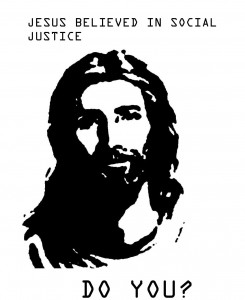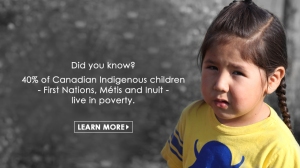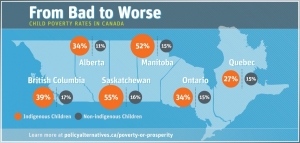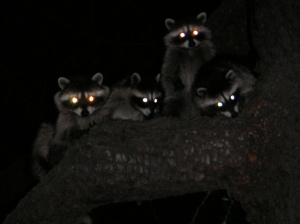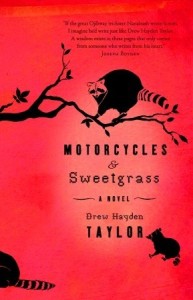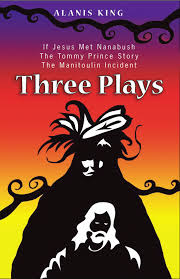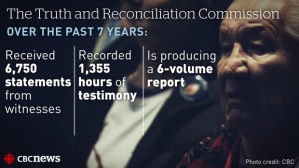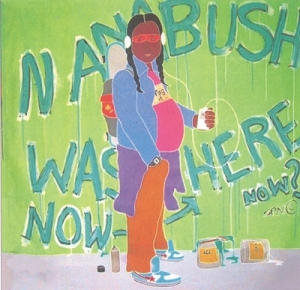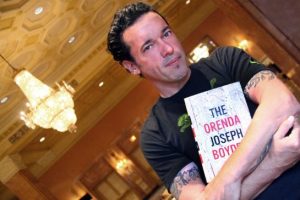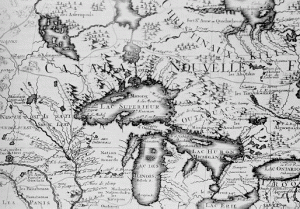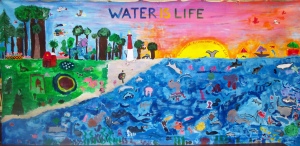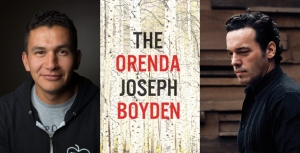Last week I read Penguin’s Extraordinary Canadians biography Big Bear by Rudy Wiebe. Penguin even put together a video about Big Bear’s time. I was born and grew up in the Treaty 6 area near the Battle River. Growing up, my Grandpa would take us to see the Ribstones near Viking. In the fields my Grandpa was given through the Veterans’ Land Act, over the years he found arrow heads and tools. I find it a bit ironic that years after the buffalo disappeared, destroying the way of life for the Cree and Blackfoot (and others), that the Government established a large National Park in Wainwright in 1907 full of buffalo purchased from Montana for visitors to see. My Grandma remembers going to see the last round up of the buffalo in 1939 before the park turned into an army base (Camp Wainwright which is still there today and even has a buffalo paddock) and the buffalo were sent up to Wood Buffalo Park. Although I never went to the area, Old Man Buffalo’s (the Iron Creek meteorite’s) original location was close by in Sedgewick/Hardisty. Yet, living near all of these Cree areas, I didn’t see a Native person until our family moved to Winnipeg.
Reading Wiebe’s account of Big Bear’s life was heartbreaking. According to Wiebe, Big Bear was a peaceful man. He worked hard to find peaceful solutions to problems and sought to talk first, act later. For years, Big Bear tried to talk with the Cree and Blackfoot and the government agents in order to help the bands in the Treaty 6 and 7 areas to start a new way of life after the buffalo disappeared. Yet over and over again, Big Bear was let down and betrayed. In an article from the Edmonton Bulletin from October 21, 1882, Big Bear is quoted as saying, “Although we trust to the law to help us, we never got the benefit of it, because our word is as the wind to the white man” (Pg. 120). Big Bear foresaw the blood and knew that things were changing, yet he could not get help in trying to lead his People into a new way of living. Yet Wiebe did not finish Big Bear’s story in despair. Wiebe finishes his story about Big Bear in a powerful way that honours Big Bear:
The buffalo and the bear might be fenced in, like his People, but they would not die out. What he had done, what he had tried to do but failed to: the Creator’s world remained and People belonged in it. His believed People would not vanish, no matter what Whites forced upon them. They knew the place given them by the Creator because they knew the stories of this place, and they would live, raise their beautiful children, and a hundred years from now the sun and the moon would still shine upon them, the rivers run. (Pg. 211)
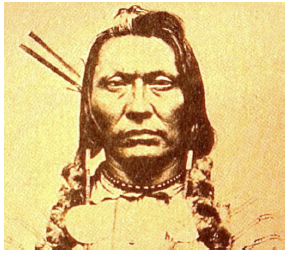
Source: http://www.canadahistoryproject.ca/1871-97/1871-05-big-bear.html
This weekend I read Indian Horse by Richard Wagamese, the story of Saul Indian Horse. Just like Big Bear, Saul Indian Horse is a peaceful person. Throughout the novel, Wagamese takes his readers through Saul’s life as Saul writes about his experiences while in a treatment facility for alcohol abuse. We learn that Saul’s parents abandon him because of their grief at having their eldest son, Saul’s older brother, stolen and put into a residential school, only for their son to come home and die. Saul survives with this Grandmother in the bush of Northern Ontario until winter hits. Saul is found at a railway station in the arms of his frozen and dead grandmother and taken to a residential school. The novel is Saul’s story of his experiences at the residential school and then his anger and hurt while trying to understand his place in the world.
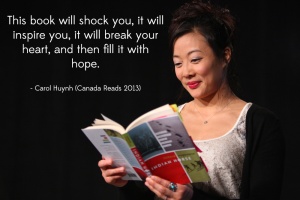
Source: http://www.cbc.ca/books/canadareads/2013/02/canada-reads-2013-panelist-quotes.html
Just as I felt while reading Big Bear’s biography, my heart broke for the pain and suffering that so many people experienced because of a dichotomy and misunderstanding based on race and culture. In his novel, Wagamese writes so clearly about Saul’s experiences at the residential school: “When your innocence is stripped from you, when your people are denigrated, when the family you came from is denounced and your tribal ways and rituals are pronounced backward, primitive, savage, you come to see yourself as less than human. That is hell on earth, that sense of unworthiness. That’s what they inflicted on us” (Pg. 81).
Saul’s only escape away from the pain is his love of hockey. Saul becomes an amazing hockey player who eventually plays for the Leafs’ farm team the Marlies. His ability to see the plays and understand the other team makes him a dynamic player because he can read the plays and make amazing passes. The ability to see life differently is a skill he remembers his grandfather having. Yet the crowds cannot accept Saul as a good player. He is constantly referred to by his race, not his skill, and the taunts and reviews make Saul so angry that he starts to spend most of his time in the penalty box. His rage makes him leave hockey, the game he loves, and become a drunk drifter. As Saul searches for answers and to figure out what actually happened to him as a child and the anger consumes him, he realizes he is not remembering the full story: “There was a part of me that desperately wanted to close the gap I felt between myself and people. But there was a bigger part that I could never understand. It was the part of me that sought separation. It was the part of me that simmered quietly with a rage I hadn’t ever lost, and a part of me that knew if the top ever came off of that, then I would be truly alone. Finally. Forever. That was the part that always won” (Pg 187).
Although Wagamese allows his character to go into dark places and to live a hard life of drifting, Wagamese also allows his character to find some healing. At the end of the novel, Saul begins to understand what happened to him and he is able to reconnect with the things that made him feel whole: hockey and family:”I want to get back to the joy of the game. That’s for sure. But if I learned anything while I was at the centre, it’s that you reclaim things the most when you give them away. I want to coach” (Pg. 218). Saul realizes that he can never be the player that he was. He realizes that he can never go back to life before his brother died. But he can move on and create new experiences within his community.
“I understood then that when you miss a thing it leaves a hole that only the thing you miss can fill” (Pg 219). Saul finds comfort in walking through the northern Ontario bush and in playing hockey. His ability to reflect and learn about himself is something that Big Bear understood better than those around him. As Big Bear was trying to negotiate and communicate with the government, he understood that his way of life and the way for life for all of the nations living on the prairies was over and that nothing could fill that void. I think that is why so many people respected Big Bear; he was able to look beyond his anger and see, just like Saul Indian Horse could see, that not everything is as it seems. The wisdom to look beyond the present must be frustrating to those who have that gift.
From reading about both Big Bear and Saul Indian Horse, one real and one fictional, I am left with a wonder for people who are able to be in a situation and look beyond it to the outcome at the same time. Healing needs to come from within. Healing is something that others can offer, support in, and encourage, yet as Wagamese reveals, healing can only come from within a person’s spirit and is therefore an individual experience. I wonder what Big Bear was thinking those days after he was released from prison before he died. Like Saul in Indian Horse, I hope that Big Bear was able to see beyond his suffering and pain and find healing.
“We are story. All of us. What comes to matter then is the creation of the best possible story we can while we’re here; you, me, us, together. When we can do that and we take the time to share those stories with each other, we get bigger inside, we see each other, we recognize our kinship – we change the world, one story at a time…” (Richard Wagamese).
“Love others as well as you love yourself” (Mark 12:31).
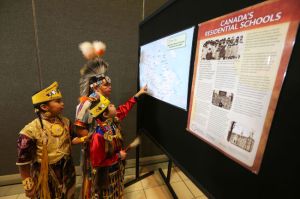
Source: http://www.edmontonsun.com/2014/03/27/canadian-residential-school-survivors-share-their-stories

